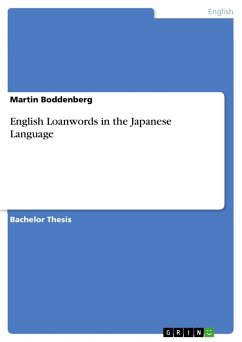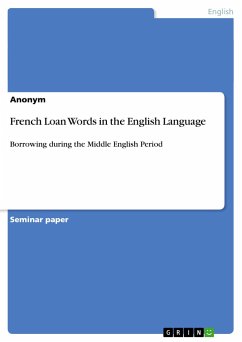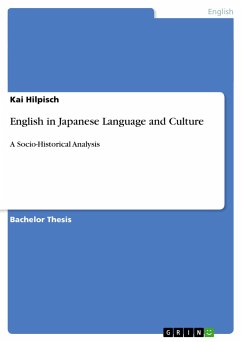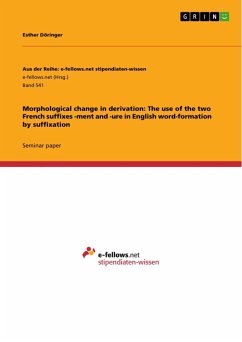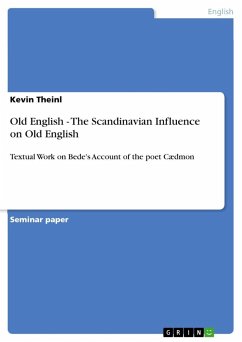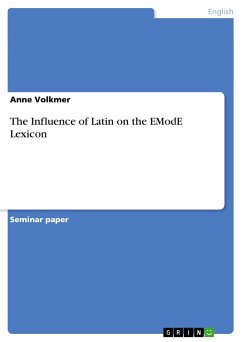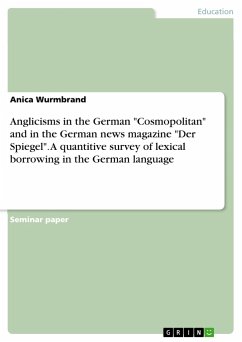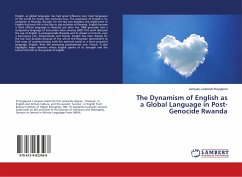Bachelor Thesis from the year 2011 in the subject English Language and Literature Studies - Linguistics, grade: 2,0, Free University of Berlin, language: English, abstract: Nowadays English has become the most important source of loanwords in Japanese by far. About 95% of all gairaigo loanwords ("words coming from abroad", i.e. words originating from European languages) derived from the English language and it is estimated that about 5-10% of the Japanese lexicon are of English origin today (Stanlaw, 2004, p.1 + p.13). The status of the English language is high in Japan. It has become a marker of high education and openness to other (Western) cultures. Nearly every Japanese pupil is taught English for at least six years at school (from seventh to twelfth grade), but there is the possibility for private schools to start teaching eikaiwa (English conversation) from third grade on. English classes are obligatory for university students of all subjects, although it should be mentioned that these classes are usually overcrowded (often more than one hundred students) and that they take place only once a week for 90 minutes. A TOEFL test in 1997/98 among 26 Asian na-tions ranked Japan 25th and last together with North Korea (McKenzie, 2008, p 272). The Japanese government made heavy efforts to improve English teaching within the last decade. It was tried to motivate more Japanese pupils to spend a year abroad, only 1,000 Japanese pupils took chance of this opportunity in 2003, although there would have been provided money for 10,000 exchange students. Besides this, there are now more assistant language teachers - mainly from the inner circle of English speaking countries, but also, to a much smaller extent, from former British colonies - at Japanese schools to improve the eikaiwa lessons. The common eigo (English) lessons are still held by Japanese teachers and are strongly text and Grammar based, usually a translation into Japanese is given. Although the Western world was the model for the Japanese modernisation in the 19th and 20th century and English was without any doubt the means of communication with the West, the vast majority of the Japanese population has never become fluent English speakers.

